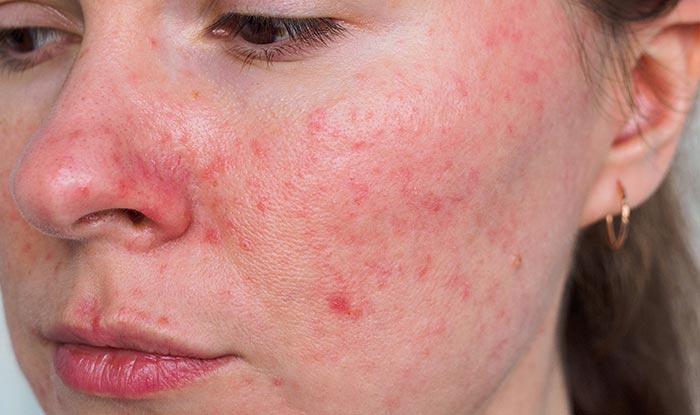Rosacea is a common chronic skin condition characterized by facial redness, visible blood vessels, and sometimes bumps or pimples. Although it primarily affects adults, its exact cause remains unknown, making management a challenge. The condition can significantly impact self-esteem and quality of life, prompting many to seek effective treatment options. Proper management involves a combination of skincare routines and professional interventions tailored to individual needs. This article explores various Rosacea Treatment in Abu Dhabi options, providing comprehensive insights into available professional approaches to help patients achieve clearer, healthier skin.
Medical and Dermatological Approaches to Rosacea
Topical Treatments
Topical medications are often the first line of defense against rosacea symptoms. These include creams and gels that reduce inflammation, redness, and bumps. They work by calming the skin, decreasing the appearance of blood vessels, and preventing flare-ups. Dermatologists may prescribe medications containing ingredients like metronidazole, azelaic acid, or ivermectin, which are specifically formulated to target rosacea’s inflammatory components. Consistent application and proper skin care routines are essential for optimal results.
Oral Medications
In cases where topical treatments are insufficient, oral medications may be recommended. These include antibiotics like doxycycline or other anti-inflammatory agents that help control more severe symptoms such as persistent redness, bumps, or eye involvement. Oral treatments are typically prescribed for short-term use or during flare-ups, providing systemic relief from inflammation and bacterial factors that may exacerbate rosacea.
Laser and Light-Based Therapies
Advanced laser and light-based treatments offer targeted solutions for visible blood vessels and persistent redness. Procedures such as pulsed dye laser (PDL) or intense pulsed light (IPL) therapy work by selectively damaging abnormal blood vessels, resulting in a reduction of redness. These treatments are minimally invasive, with quick recovery times, making them suitable options for individuals seeking significant cosmetic improvements. Multiple sessions may be needed to achieve desired outcomes, and these therapies are often performed by qualified dermatologists or cosmetic surgeons.
Lifestyle and Skincare Modifications
Identifying and Avoiding Triggers
Managing rosacea often involves lifestyle adjustments to minimize flare-ups. Common triggers include exposure to sunlight, extreme temperatures, spicy foods, alcohol, and stress. Patients are advised to identify their personal triggers and modify their routines accordingly. Consistent use of broad-spectrum sunscreens and protective clothing can help prevent exacerbations, making daily skincare more effective.
Gentle Skincare Practices
Using gentle, fragrance-free skincare products is crucial for rosacea management. Harsh cleansers, exfoliants, and products containing alcohol or irritating ingredients should be avoided. Dermatologists recommend using mild cleansers and moisturizers that strengthen the skin barrier while reducing inflammation. Proper cleansing routines help prevent irritation and maintain skin health, supporting other treatment modalities.
Integrative and Complementary Treatments
Phototherapy and Other Modalities
In addition to conventional treatments, some patients benefit from phototherapy techniques that aim to reduce vascular symptoms and improve skin tone. These treatments harness light energy to stimulate skin healing and reduce redness. While not universally applicable, they can complement other therapies, especially in cases where vascular symptoms are prominent.
Cosmetic Procedures for Rosacea
Certain cosmetic procedures, such as dermal fillers or chemical peels, may be considered to improve skin appearance in rosacea patients. These interventions are performed by trained professionals and tailored to individual skin types and symptoms. They can enhance overall skin texture and reduce the visibility of blood vessels, contributing to a more even skin tone.
Personalized Treatment Planning
Consultation and Customization
Effective rosacea management requires a personalized approach. Consulting with experienced dermatologists allows for a comprehensive assessment of symptoms, triggers, and skin type. Based on this, a customized treatment plan is devised, combining various therapies to optimize results. Continuous monitoring and adjustments ensure that treatment remains effective over time.
Combining Multiple Modalities
Many patients benefit from an integrated treatment approach, combining topical, oral, laser, and lifestyle strategies. This multidisciplinary method addresses the multifaceted nature of rosacea and enhances the likelihood of long-term control. Regular follow-ups help track progress and adapt treatments as needed.
The Importance of Professional Guidance
Professional intervention is crucial in managing rosacea effectively. Dermatologists and skin specialists are trained to diagnose the condition accurately and recommend suitable treatments. They also provide education on trigger management and skincare routines, empowering patients to take control of their condition. Investing in professional guidance ensures safe, effective, and sustainable results.
FAQs about Rosacea Treatment Abu Dhabi
Q1: What factors influence the choice of rosacea treatment?
A1: The severity of symptoms, skin type, triggers, and patient preferences play significant roles in determining the most suitable treatment options.
Q2: Are there non-invasive options available for rosacea management?
A2: Yes, non-invasive treatments such as topical medications, laser therapy, and lifestyle modifications are commonly used to manage symptoms effectively.
Q3: How long does it typically take to see results from professional rosacea treatments?
A3: Results vary depending on the treatment modality and individual response but often become noticeable within a few weeks to months of consistent therapy.
Q4: Can rosacea be cured completely with professional treatments?
A4: While rosacea can be effectively managed and symptoms significantly reduced, it is a chronic condition that requires ongoing maintenance and lifestyle adjustments for long-term control.
Conclusion
Managing rosacea requires a comprehensive, professional approach tailored to each individual’s needs. From topical and oral medications to advanced laser treatments and lifestyle modifications, numerous options are available to control symptoms and improve skin appearance. Consulting with experienced skin specialists ensures the selection of appropriate therapies and supports sustained skin health. With proper management, individuals with rosacea can achieve a significant reduction in symptoms and enjoy improved confidence and quality of life.







0 Comments